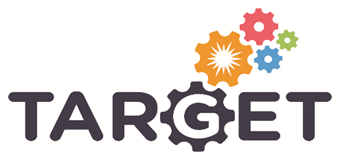Radio-frequency identification (RFID) uses electromagnetic fields to automatically identify and track tags attached to objects. RFID can be used for remote monitoring of product flow in the factories and warehouses. RFID can also be used in tracing personnel. The possibilities are limited only by imagination
Description of the tool
Methodology
The technology enables the reading of tags from a distance and replaces the previously used barcode-tags, which tend to get lost or torn into pieces. Comparing with barcode tracking, RFID enables longer ranges between the product and reader. The tag has not to be line of sight and it can even be placed inside the packaging material.
Case Study
Using RFID on tracking the soft drink pallets on drinks factory. It was proven to be feasible for maintaining up-to-date storage inventory.
Objective of the tool
Outcomes Expected
More efficient tracking of the product flow inside the factory. More up to date warehouse registry.
Why Used
Using RFID tags of product tracking helps the manufacturer in recognizing the status quo in the company. Real-time tracking of the warehouse helps in production planning as the storage room can be optimized.
Scope of the tool
Where Used
In production lines and warehouses. Even in transportation and sales premises. All kinds of products. Can be joined with a barcode.
How Used
Radio-frequency identification (RFID) uses electromagnetic fields to automatically identify and track tags attached to objects. There are several types of RFID-tags and readers.
Low frequency tags can be used for example in tracking animals and on access controls. High frequency tags are suitable for libraries, ID-cards etc. Ultra-high frequency is used in supply chains and manufacturing, electronic tolls, tracking and timing: they can be divided in passive and active devices. The employment of the RFID depends on the type. Passive RFID range can be up to 10 meters whereas active RFID can reach 100 meters.
Deployment
Training
Mentor Skills/Training:
Knowledge of:
1. different technologies
2. usability in different cases
Equipment:
1. RFID-tags
2. RFID-reader
3. Software
Materials – Train the Trainer materials, to train the mentors:
1. RFID-Training material
2. Manuals (links to manuals)
3. Questionnaire for need
Tasks Assigned
Centria will offer services in sharing information and knowledge of RFID. Courses on utilizing the technology can be provided.


